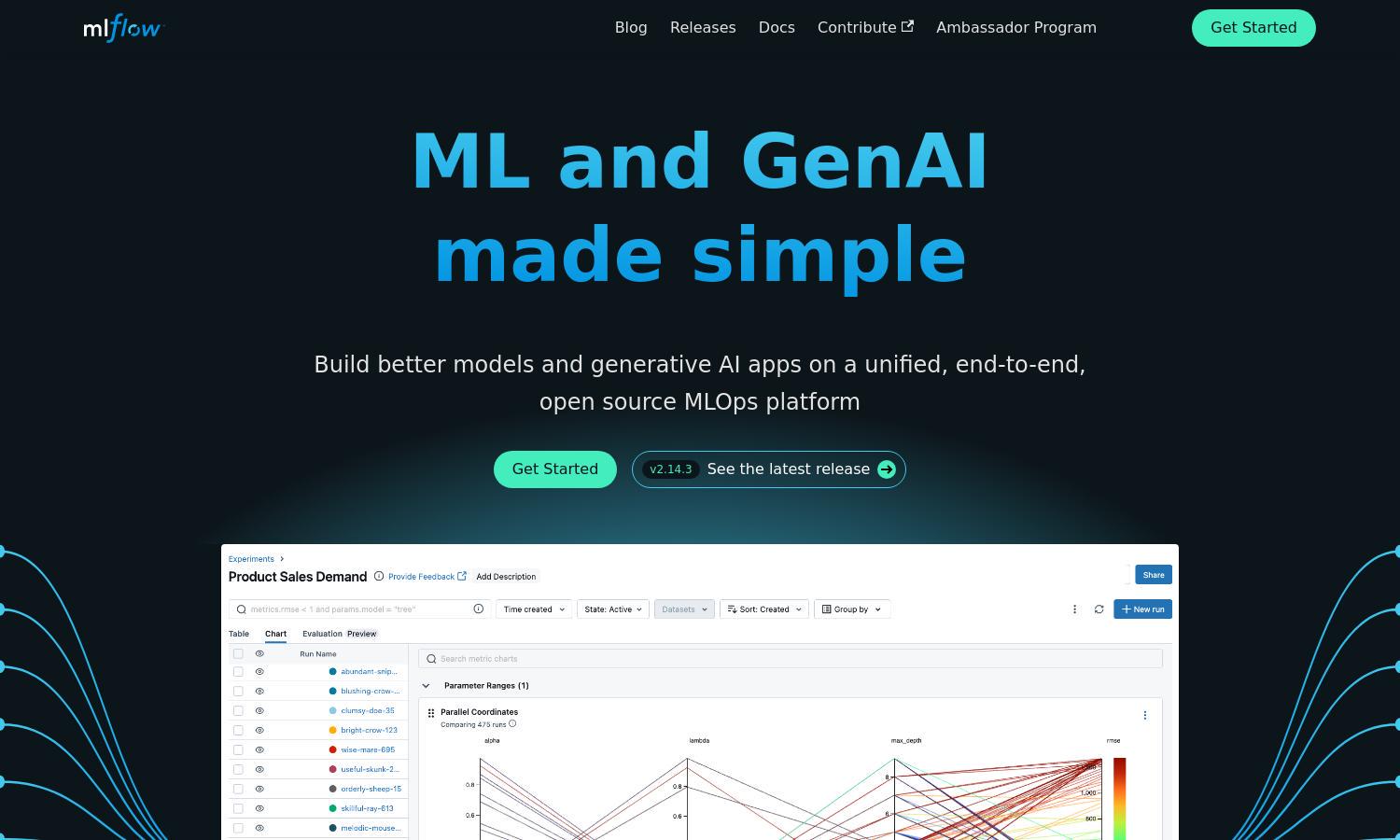MLflow

About MLflow
MLflow is an open-source platform designed for ML and generative AI practitioners, enabling efficient management of the entire project lifecycle. Key features include seamless experiment tracking and model registry functionalities. By using MLflow, users can streamline their workflows, enhance collaboration, and improve project outcomes.
MLflow's pricing plans offer a free tier with essential features, while premium tiers provide advanced capabilities like enhanced integrations and dedicated support. Upgrading unlocks additional functionalities, ensuring users maximize their experience and efficiency. With competitive pricing, MLflow caters to diverse needs across the machine learning community.
MLflow features a user-friendly interface that creates a seamless browsing experience for managing machine learning projects. Its layout is designed for easy navigation, offering intuitive access to experiment tracking and model management tools. This enhances user engagement and simplifies workflows, making MLflow an essential resource for ML practitioners.
How MLflow works
Users begin with MLflow by signing up and onboarding through a straightforward process. Once set up, they navigate the main dashboard to utilize key features such as experiment tracking, model management, and deployment tools. MLflow supports effortless integration with popular ML libraries, ensuring users can smoothly transition from development to production.
Key Features for MLflow
Experiment Tracking
MLflow's experiment tracking feature allows users to monitor multiple machine learning projects simultaneously. This capability optimizes the development process, enabling practitioners to log parameters, metrics, and artifacts efficiently. With MLflow's tracking tools, users gain valuable insights that facilitate better decision-making and project outcomes.
Model Registry
The Model Registry in MLflow provides a centralized location for managing and versioning machine learning models. Users can store, annotate, and organize their models, ensuring easy access and collaboration among team members. This feature simplifies the deployment process, streamlining project workflows and enhancing productivity.
Generative AI Support
MLflow offers robust support for generative AI projects, enabling users to build and manage advanced models effectively. Its dedicated tools for generative AI facilitate experimentation, evaluation, and optimization, making MLflow essential for researchers and developers seeking to harness the power of AI in their applications.
You may also like:








